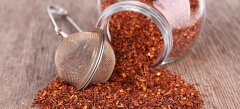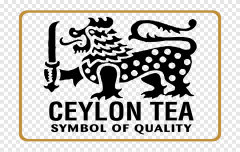What is the difference between the main varieties of Ceylon black tea No. 1, No. 2, No. 3? What does Ceylon BOP black tea mean?
Even for the most tea-savvy lovers, walking in the tea section of the local supermarket can be overwhelming. From green tea to white tea to oolong tea, there seems to be an unlimited choice, each with different tastes and unique health benefits. Although Ceylon tea is often overlooked because of big brands and more familiar names, in fact, Ceylon tea is the basis of many popular mixed and packaged teas and has been severely affected in terms of nutrition.
In addition to its delicious taste, Ceylon tea is also very versatile and rich in antioxidants, polyphenols and flavonoids, which is good for your health, so Ceylon tea deserves to be on your next shopping list. But what is the taste of Ceylon tea? how do you drink it? does Ceylon tea have caffeine? Read on to learn more about the potential benefits and side effects of Ceylon tea and how to incorporate this nutritious tea into your diet.
What is Ceylon tea?
Ceylon tea refers to any kind of tea produced in Sri Lanka, formerly known as Ceylon. Like other kinds of tea, Ceylon tea is made from the leaves of tea trees, which are then dried and processed into different kinds of tea.
For example, white Ceylon tea is harvested early and is considered to be the least processed type of tea, which helps to maintain its impressive antioxidants and nutrients. Ceylon green tea is less processed than black tea and does not undergo the same oxidation process, so it is lighter in color. Black Ceylon tea is one of the most famous and popular types of Ceylon tea, which is used as the basis of tea all over the world, such as Earl Grey Tea and iced tea.
Ceylon tea is said to contain more antioxidants, so Ceylon tea is more healthy than other types of tea because of differences in soil, climate and production methods. Not only that, Ceylon tea is generally considered to be richer, bolder and more full-bodied, which distinguishes it from other ordinary tea varieties.

Side effect
Ceylon tea is a safe and healthy dietary additive for most people if consumed in moderation. However, it does contain caffeine, which may have side effects on some people. Ceylon tea usually contains 23-110 milligrams of caffeine per 8 ounces. This is usually lower than the caffeine content of a cup of coffee, which is about 95 milligrams per cup, but depending on the brand and type of coffee, the caffeine content may be two or three times that amount.
Although caffeine intake has many benefits, including increasing alertness and reducing the risk of certain neurodegenerative diseases, it can also have a series of negative effects on health. In fact, excessive caffeine consumption can cause symptoms such as thirst, rapid heartbeat, insanity, sweating and muscle convulsions. For pregnant women, it is also recommended to limit caffeine intake to less than 200 milligrams per day to reduce the risk of negative side effects and health problems.
To reduce the caffeine content in Ceylon tea, you only need to limit the time it takes to make tea. You can also pour boiling water on the tea, soak it for 30 seconds, then throw away the liquid, and then use the tea to make a new cup of tea. This method greatly reduces the amount of caffeine, but still allows you to take advantage of the health benefits and delicious taste of Ceylon tea.
Drinking large amounts of Ceylon tea may also cause some side effects. In one report, for example, a 37-year-old woman who drank nearly two liters of black tea a day was found that black tea impaired iron absorption and delayed the recovery of iron deficiency anemia. Fluoride found in Ceylon tea, if consumed in large amounts, can also lead to fluorosis, a discoloration of teeth caused by exposure to fluoride.
In other words, drinking one or two cups of Ceylon tea a day can reduce the risk of side effects and allow you to take full advantage of the potential health benefits offered by this highly nutritious drink.
Important Notice :
前街咖啡 FrontStreet Coffee has moved to new addredd:
FrontStreet Coffee Address: 315,Donghua East Road,GuangZhou
Tel:020 38364473
- Prev

Which kind of tea do you often drink is better for your health? the efficacy and effect of South African national treasure tea Louis Bols tea
It is well known that many teas, especially green teas, have many impressive health benefits, but did you know that some herbal teas (those without caffeine) also have the same effect? One example is Louis Persian tea, which is considered to be an excellent anti-inflammatory drink that can fight a variety of diseases.
- Next

The difference between bop and ctc of Ceylon Black Tea Taste description of Ceylon Black Tea and its effect on Health
The benefits are rich in antioxidants, anticancer properties, stabilizing blood sugar, keeping the brain awake, lowering cholesterol levels and promoting fat burning. Ceylon tea is rich in disease-resistant polyphenols, which is a plant compound that acts as an antioxidant in the body. Antioxidants help fight free radicals, prevent oxidative stress and prevent cell damage. The formation of free radicals has been proved to be in the package
Related
- Unexpected! Ruixing Telunsu lattes use a smoothie machine to foam milk?!
- % Arabia's first store in Henan opens into the village?! Netizen: Thought it was P's
- Does an authentic standard mocha coffee recipe use chocolate sauce or powder? Mocha Latte/Dirty Coffee/Salty Mocha Coffee Recipe Share!
- What is the difference between Vietnam egg coffee and Norway egg coffee? Hand-brewed single product coffee filter paper filter cloth filter flat solution!
- What is the difference between sun-cured and honey-treated coffee? What are the differences in the flavor characteristics of sun-honey coffee?
- How to make Italian latte! How much milk does a standard latte use/what should the ratio of coffee to milk be?
- How to make butter American/butter latte/butter Dirty coffee? Is hand-brewed coffee good with butter?
- Is Dirty the cold version of Australian White? What is the difference between dirty coffee/decent coffee and Australian white espresso?
- Relationship between brewing time and coffee extraction parameters How to make the brewing time fall to 2 minutes?
- Got entangled?! Lucky opens a new store, Mixue Ice City, and pursues it as a neighbor!

